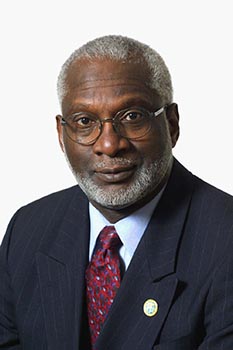 |
| David Satcher, M.D., Ph.D. |
The program will run from 6-9 p.m. Tuesday, Nov. 12, at the Edge of Chaos, on the fourth floor of the Lister Hill Library of the Health Sciences, 1700 University Blvd. Organizers say the program, which is free and open to the public, has particular significance for mental health providers and advocates, faith leaders, and community leaders.
The church bombing and other pivotal events brought national and international attention to the civil rights movement. Violence and turmoil in a community can take a toll on the mental health and well-being of its citizens, and this program will focus on the capacity of communities to heal and be resilient in the aftermath of trauma and tragedy.
Speakers include Satcher and Jeff Drew, a Birmingham native who grew up on Dynamite Hill, a neighborhood that was the frequent target of bombing attacks. Psychiatrists and other mental health professionals will speak about the impact of trauma on mental health and the capacity of affected people and communities to rebound and thrive.
Satcher, a native of Anniston, Ala., graduated from Morehouse College in Atlanta and received his M.D. and Ph.D. from Case Western Reserve University. He served on the faculty at the Morehouse School of Medicine and the UCLA School of Medicine. He was president of Meharry Medical College in Nashville and director of the Centers for Disease Control and Prevention. He was named the 16th surgeon general of the United States in 1998.
Presenting partners include the American Association of Community Psychiatrists, the University of Alabama at Birmingham Center for Psychiatric Medicine and the Alabama Psychiatric Society District Branch.